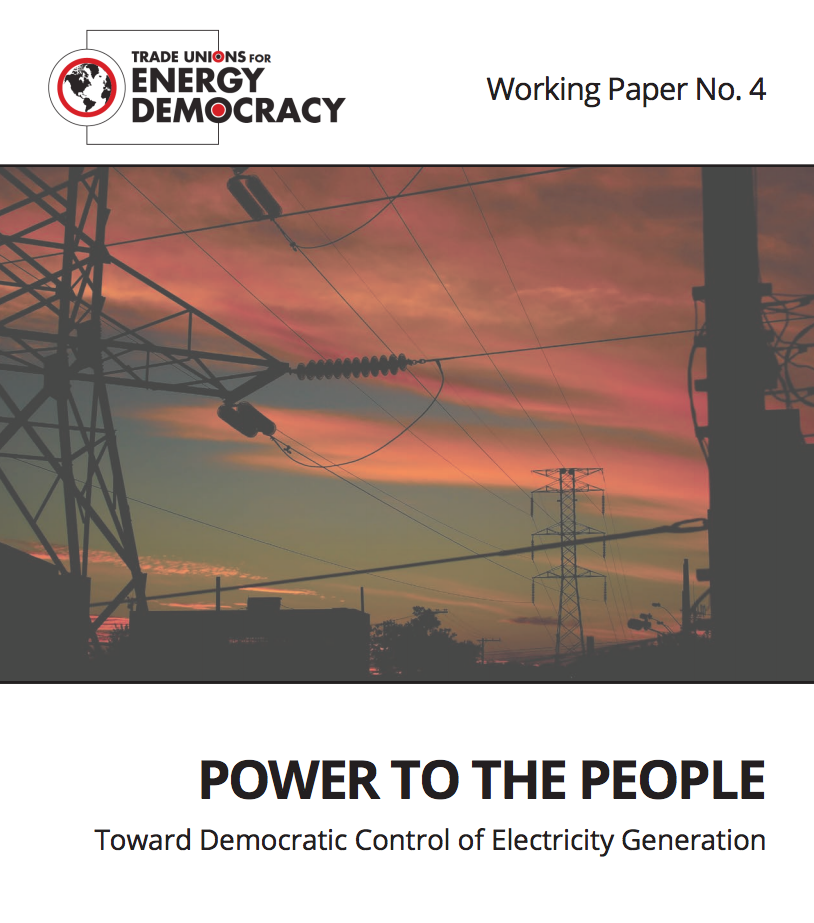This provocative whitepaper explores how public and cooperative ownership in the energy sector can accelerate a transition to sustainable energy while creating democratized wealth, using the historical experience of rural electrification in the United States as a key starting point to imagine a green future.
More on the report:
In the last years, “energy democracy” has become a part of the international trade union discourse on energy and climate change. A growing number of unions and regional bodies, like the Trade Union Confederation of the Americas, are calling for democratic control over energy, a “reclaiming” of the energy sector to the public sphere, and a just transition to a renewables-based, low-carbon economy.
Power to the People: Toward Democratic Control of Electricity Generation starts by examining the historical experience of the “public works” approach to energy transition during the New Deal in the United States and, in particular, the Rural Electrification Administration—a model of state-cooperative interaction and partnership replicated successfully in numerous countries during the post-World War II period. The working paper then aims to flesh out the actual and potential content behind the term energy democracy in order to help unions get a better grasp of what is happening now and what could happen in the future. It discusses the major “fronts” on which the struggle for democratic control of power generation is currently expressing itself: cooperatives in the renewable energy sector and their potential contribution to energy democracy, as well as recent attempts to reclaim electrical power generation at the municipal level.
